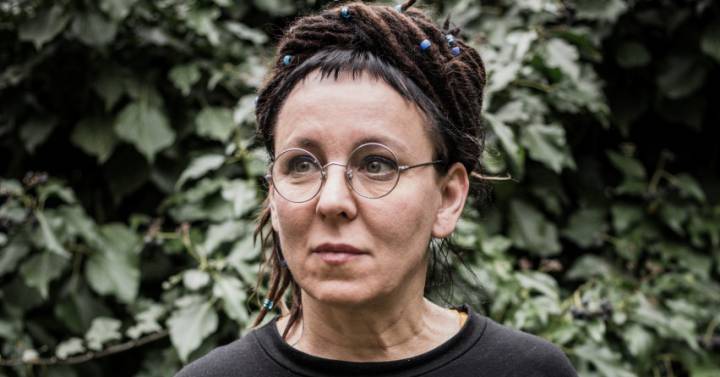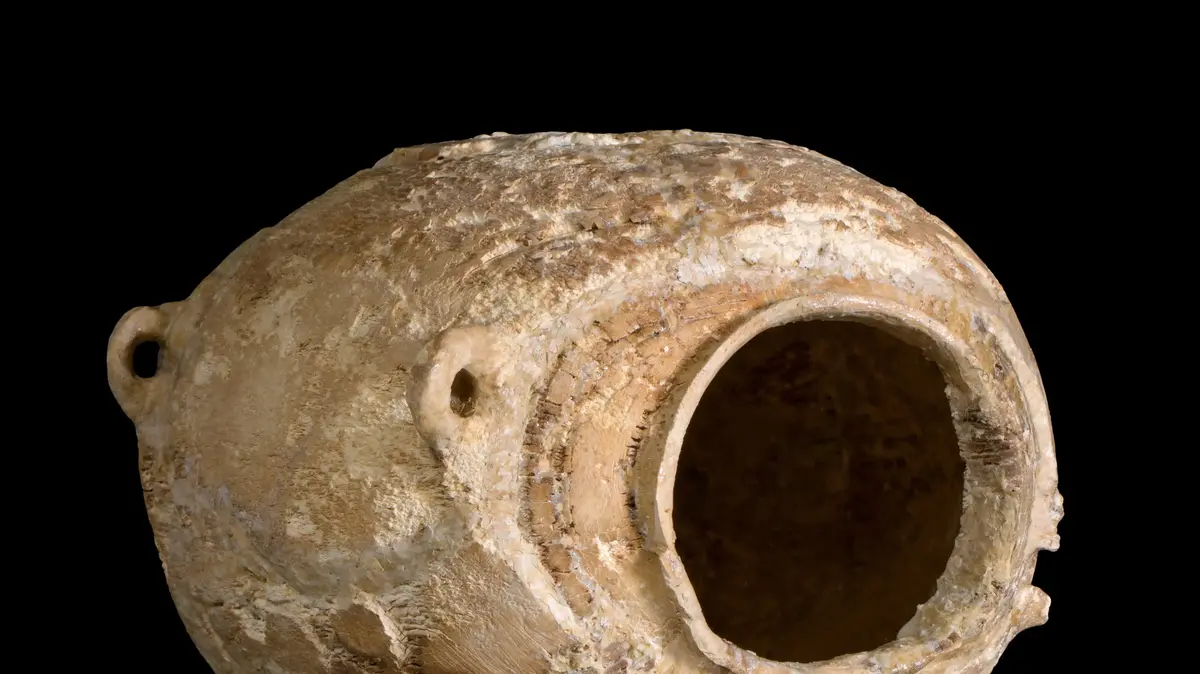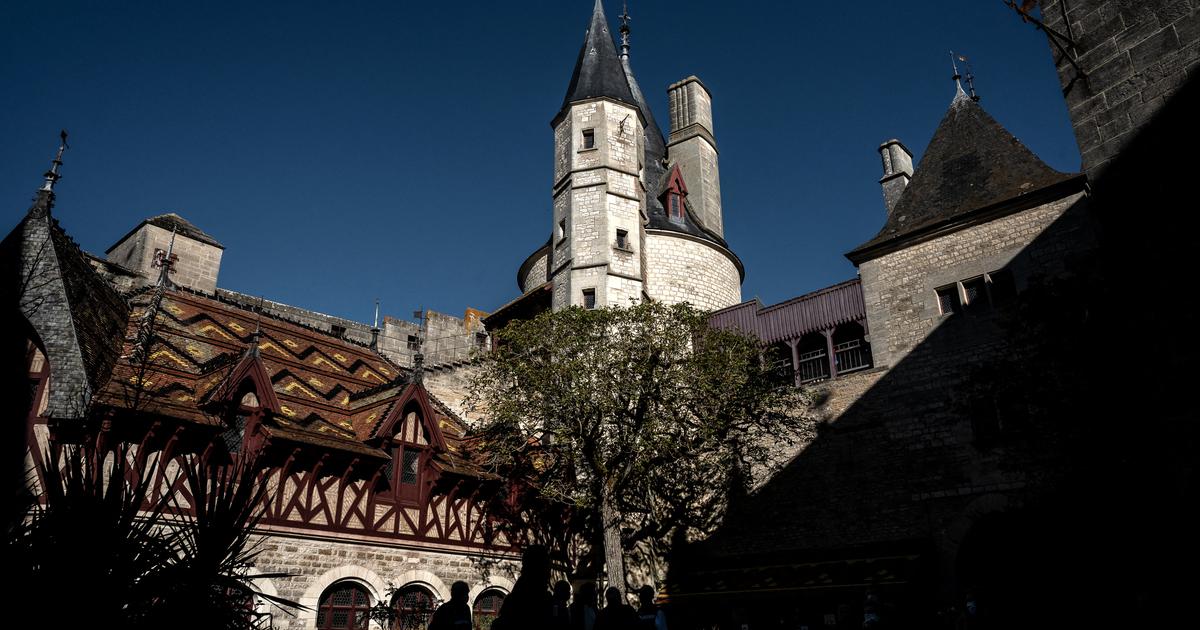Creating a place of our own and generating around it a valid mythology to explain life or to outline the limits of our inability to understand it is a goal that few authors have achieved. García Márquez did it in Macondo, Cervantes in a place in La Mancha or Lewis Carroll in Wonderland. But there is another place knocking on the door: In the past, “a place located in the center of the universe”, the probably most fanciful, imaginative and overflowing creation of Olga Tokarczuk, (Sulechow, Poland, 1962), awarded in 2019 with the Nobel Prize for Literature of 2018, year in which the Swedish Academy postponed it.
A place called Antaño (Anagram) is the title recently published in Spain of this Nobel, of whom we hardly knew About the bones of the dead (Siruela) and Los errantes (Anagrama). The pandemic frustrated his promotion in Spain and all the plans he had in place, but Tokarczuk has found in this plague of the 21st century, of a world that was believed to be safe and is not, a good excuse to stop and also reflect. "It was a relief to give up my travels, I was tired and it had been a long time since I lived in my own house," she tells EL PAÍS by email. The confinement also coincided with the illness of her dog and she is grateful for having been able to take care of her. “I think that the pandemic is above all a lesson in humility. It is an old and somewhat forgotten concept. Man forgot humility before nature, before forces superior to him. Spurred on by an unusual arrogance, he destroyed many things around him: living beings, the environment, the landscape. The weather changed. And now he is preparing his deployment in the cosmos ”, he reflects.
MORE INFORMATION
JOURNEY THROUGH EUROPE THROUGH FIVE BOOKS | 1. MELANIA MAZZUCCO. Hate the African is a choice- TRAVEL THROUGH EUROPE THROUGH FIVE BOOKS / 2. EIDER RODRÍGUEZ. Manifesto of what really matters
Those who have approached his work know that Tokarczuk, born under communism in Poland and an adult under capitalism and democracy, navigates both introspection and love of a nature that strongly connects her with the world. Her work is a dam against frivolity, destruction, violence. “The pandemic teaches us that we are still just another species on earth, dependent on an intricate web of relationships, that we have a fragile and deadly body and that our possibilities are limited. I have the impression that the maxim Memento mori, so popular in the cultural formation of the European Baroque, returns when the human being was forced to face epidemics, wars and cruel, inconceivable forces. It is the return to a vision of the world as a mystery, to a search for the meaning of human existence on earth, to inquire about the nature of man and the presence of evil. This can be an interesting time ”.
And it is in that perpetual search that he proposes that A Place Called Old, the brightest explosion of characters, conflicts, relationships, lives and deaths that can be made. Tokarczuk elevates the lives of madmen, villagers, millers, parish priests, faithful Catholics, soldiers, Nazi or Soviet invaders, people laden with miseries, limits and narrow ambitions to a majestic category. From human costume jewelery - the one we all make - he achieves jewelery. His focus shifts to one another, illuminating humans, animals and plants in a fusion that is common and encouraging in his work. She is in everything.
It used to be any town in Poland, of course. A rural, Catholic Poland where the search for an acceptable way of life is always truncated by the vicissitudes decided by others: World War I and service to the Russian Tsar, the Nazi invasion and then the Soviet invasion in World War II; the communist regime and the intrinsic corruption that it fed among the most vile and servile. Forests, orchards, cows also suffer the ups and downs of a story that only has to do with other people's wills.
“In the past it is an allegorical and metaphorical place. In that sense, it has never existed and at the same time it always exists ”, says Tokarczuk. “In the past, time was the basic order, the structure: although it is not common for everyone, in a certain sense everyone has it. Each character's time is a kind of individual bubble, a psychophysical scene in which the characters interpret their lives. These times interact with each other, sometimes getting to interfere with each other ”. The author wrote this book 25 years ago, “when I still saw the world as Leibniz, that is, full of independent monads. Today I think of it a little differently: as a network of mutual influences ”. In the past, it is others who decide and the inhabitants and the habitat of the past suffer. A powerful current metaphor.
But it's not just that. Behind everything happening is spun a questioning of God and the blind belief in his power. The one that is everywhere and that when you try to find it is not there. The one who created us and was so proud that he didn't think about the consequences. The one that did not do us the favor of immutability, but allowed us to mutate to our misfortune. The one who is mutating himself. Reflections sprinkled throughout the book by the hand of one of the protagonists, the hydrocephalic Izydor, who being a different person, a disabled person, grows up in the novel as the only one capable of genius in thought. Izydor does not understand why his mother died in the war, why his father died, why Ruta, his soul mate, his love, left, mistreated and enslaved by a husband whom he chose to wear high heels.
Because isn't all that incomprehensible? Can you get through that much without vodka binges, without revenge? Did someone believe that by being hidden in the center of the universe, that center that is the people of each one, someone was going to get rid of the unjust death, the invasion, the dictatorship, the drunk husband, the rape or the rebellion of nature?
There are great reflections possible after reading A Place Called Old, as are those of On the Bones of the Dead, a rich and unique crime novel where an old animalist plays a role that is not empathetic, but decisive and brilliant. Impossible to tune into her except for the ties of humor and perplexity. That they are huge. Fine work.
There are easy authors who give us everything chewed up. There are more difficult, more challenging ones that make us work. Tokarczuk hands us the shovel and says: dig. Look for those gems, the lessons of conservatism and adaptation, of nature, of mutability, of faith and loss of faith. Take all that jewelery and discover that I have prepared precious stones for you because I am not talking about Yesterday, nor about Poland, but about your people and you. Huge literature that leads us to ask about your engine.
"Why do you write?"
“On the threshold of adult life,” she says, “writing gave me a sense of freedom and self-esteem. It was a great comfort, since I did not have to fulfill myself in a role imposed by others. I found a space of my own, mysterious and particular ”. He wrote so much in those years that he is grateful that many of his first texts did not see the light. “Now it is my profession. I am lucky that, in my case, my work is also my hobby . I don't think I could do anything else ”.
Sometimes, he says, "I would like to believe that literature, writing is a process that recreates the world." But few are interested in books and only a small number of people read. “A few words spoken or signed by a writer are much less relevant than the decisions of economists and politicians, important scientific discoveries or new drugs. These are the ones that change the world. Literature is a somewhat elitist field today. It involves advanced countries, with a developed publishing infrastructure, where a market operates, there is a network of bookstores and newspapers. We are privileged, both writers and readers. Neither in the remote steppes of Asia nor in the slums of the big African or American cities do you read literature anymore ”.
His, he confesses, is moving. Tokarczuk has just returned to live in his old home, where his first books were produced. "I wonder what inspirations I will find here, new or old." We'll be alert.
Translation of the responses of Amelia Serraller Calvo .









